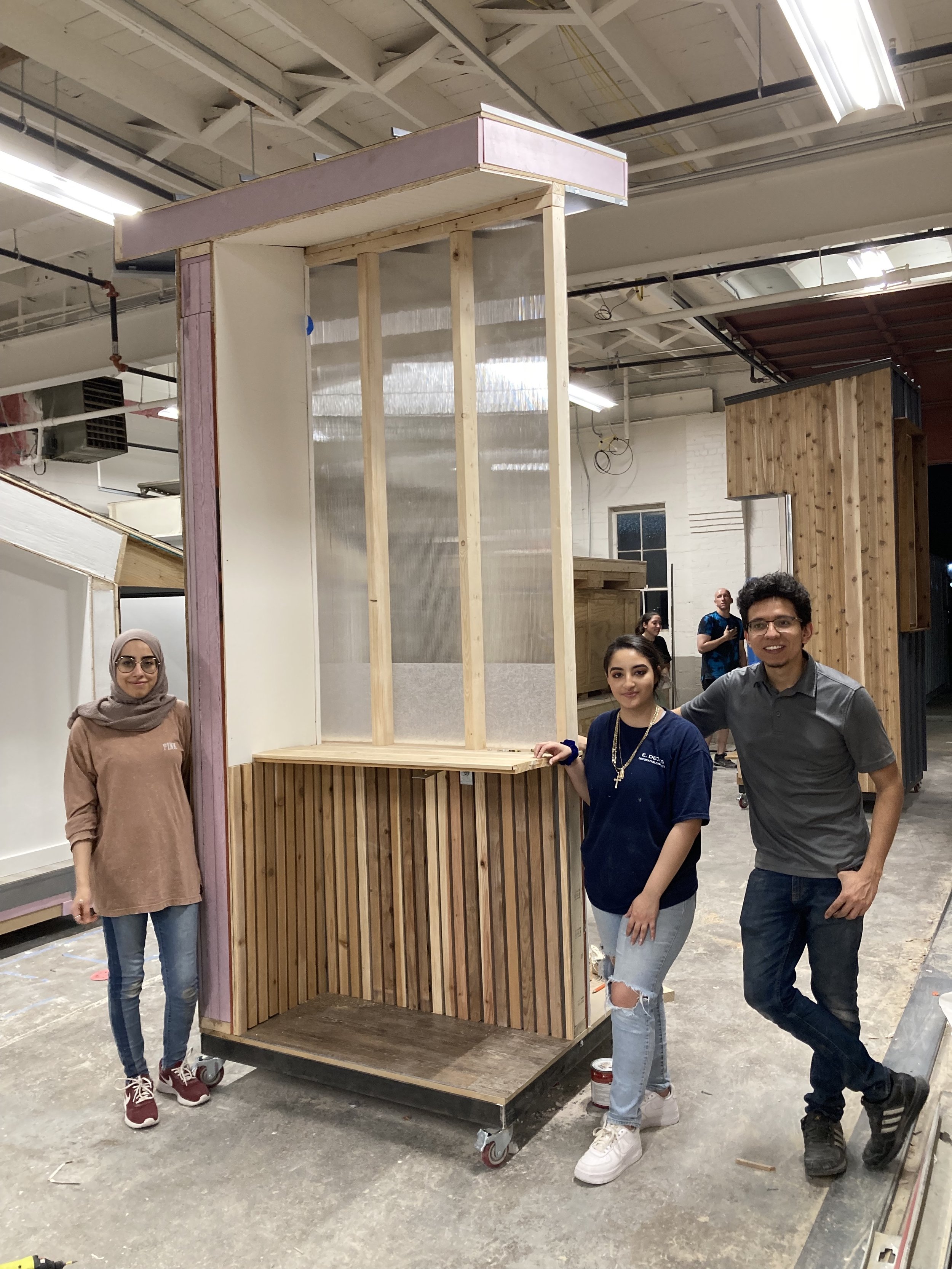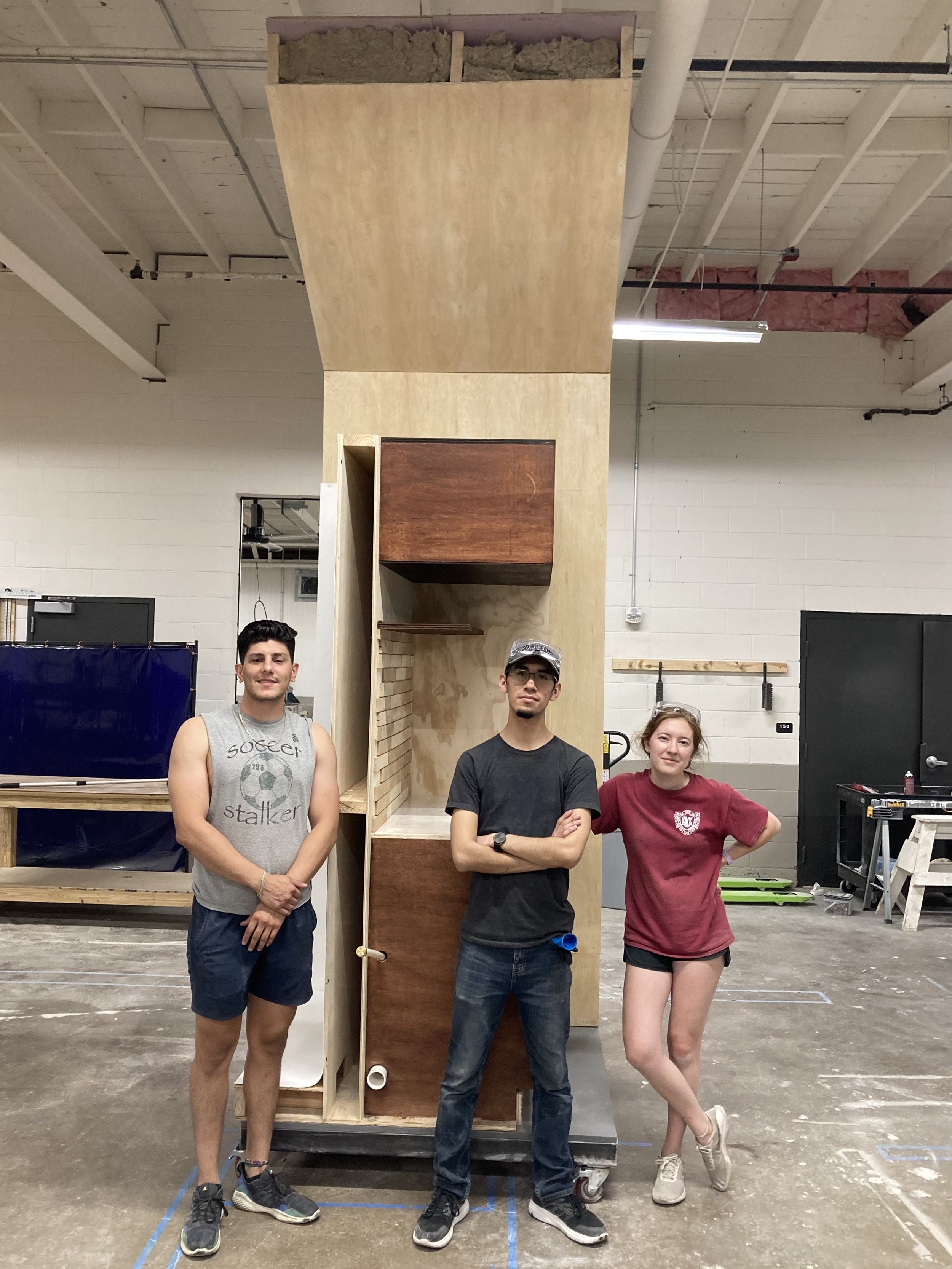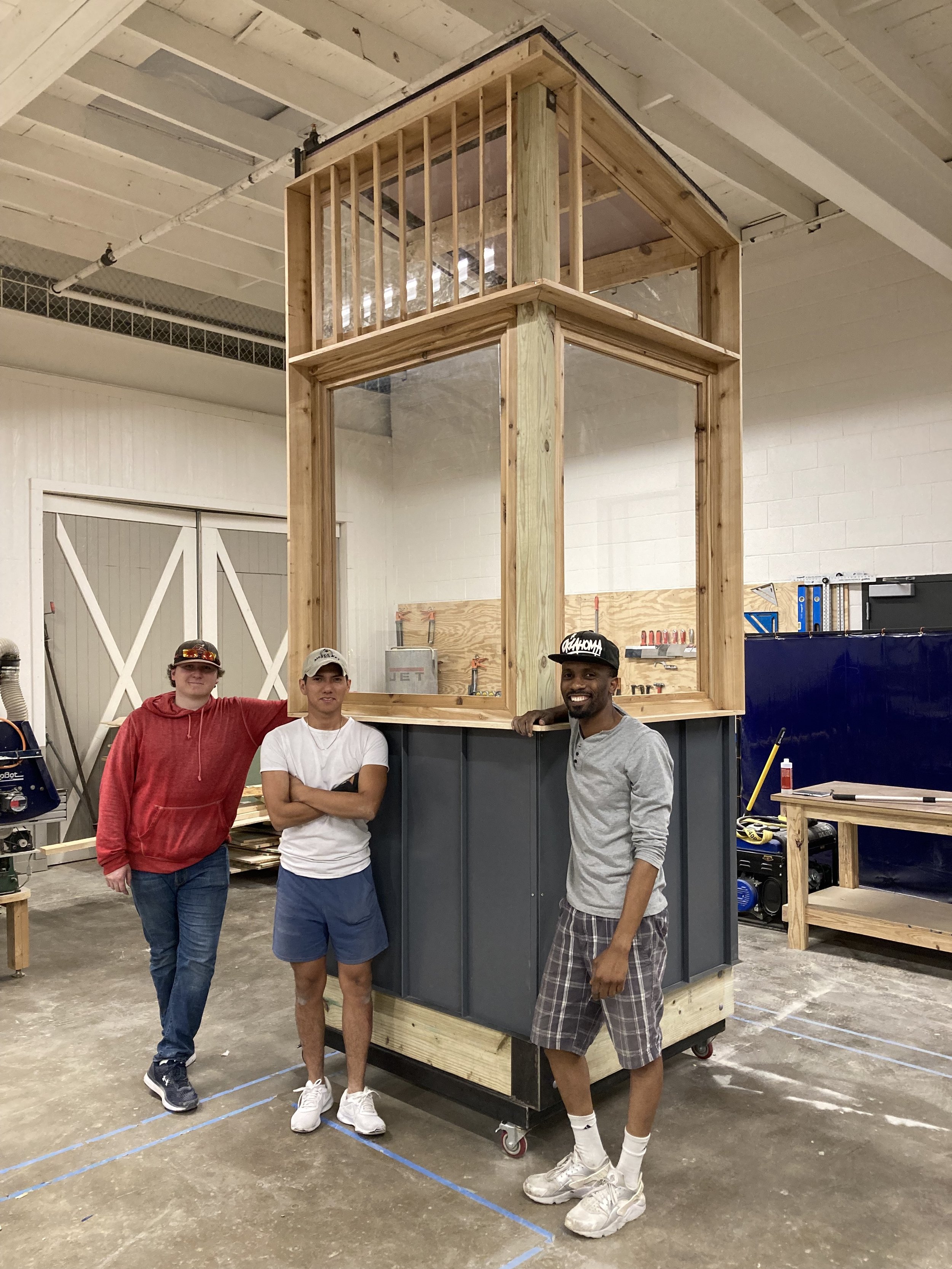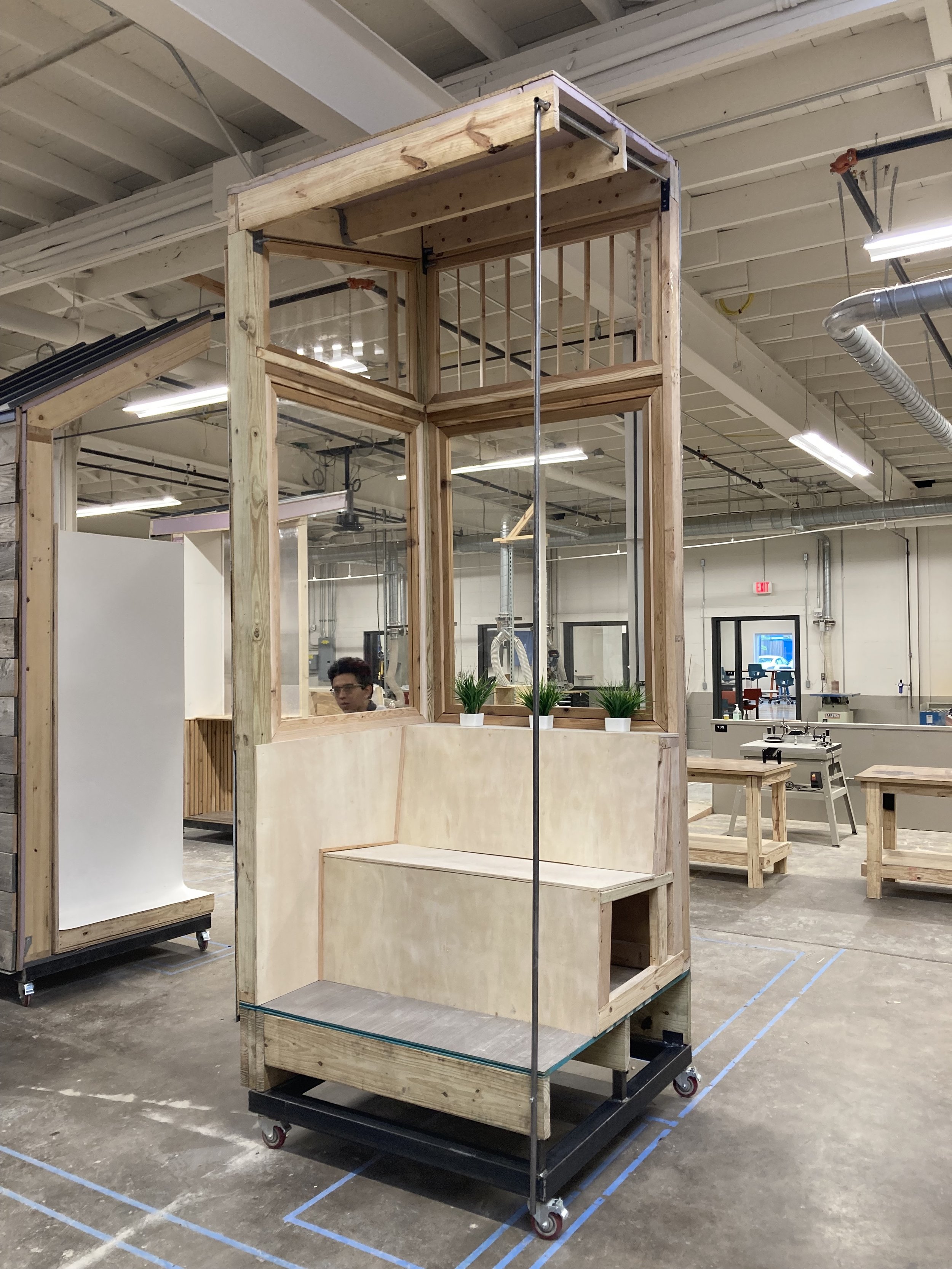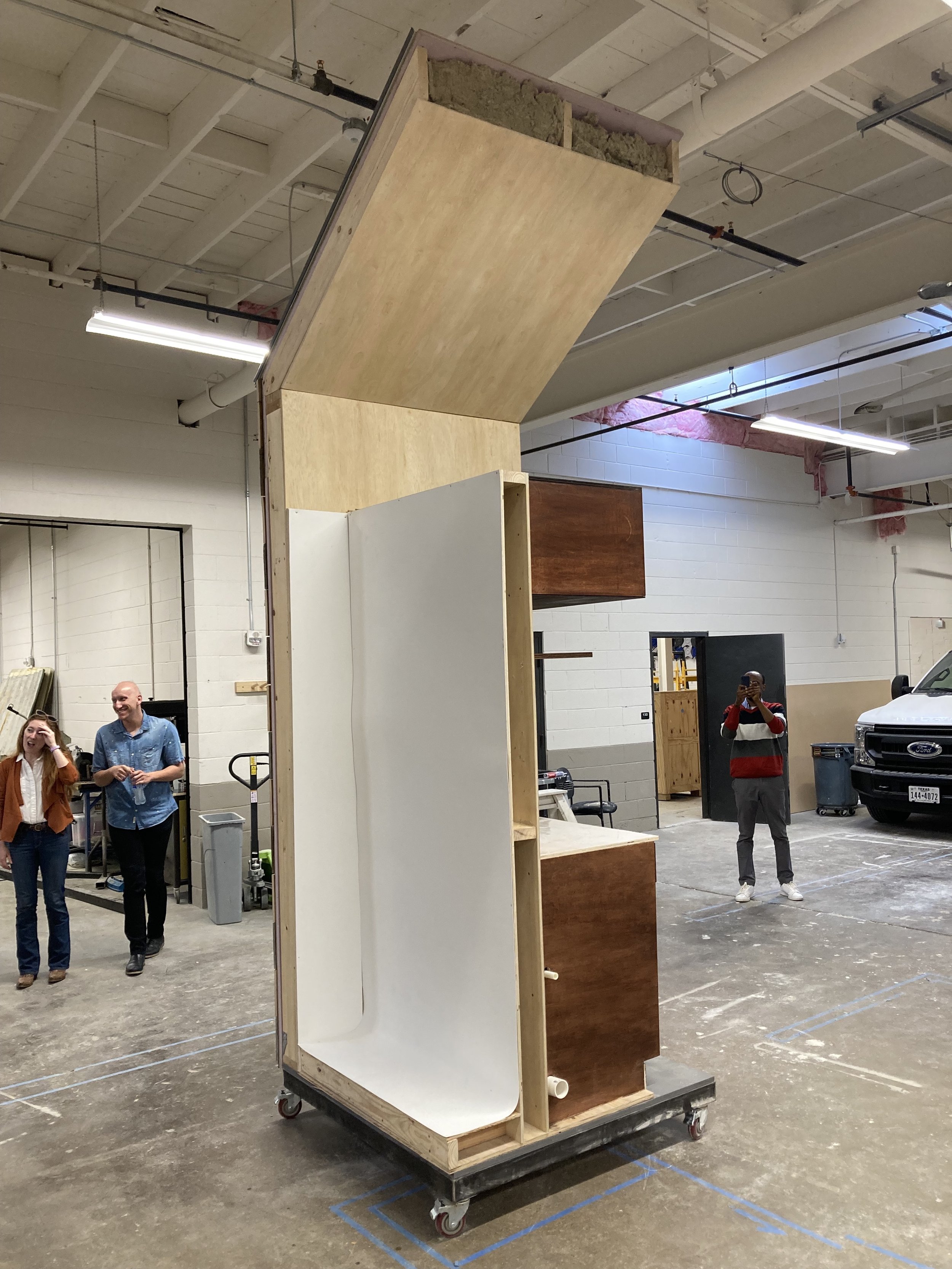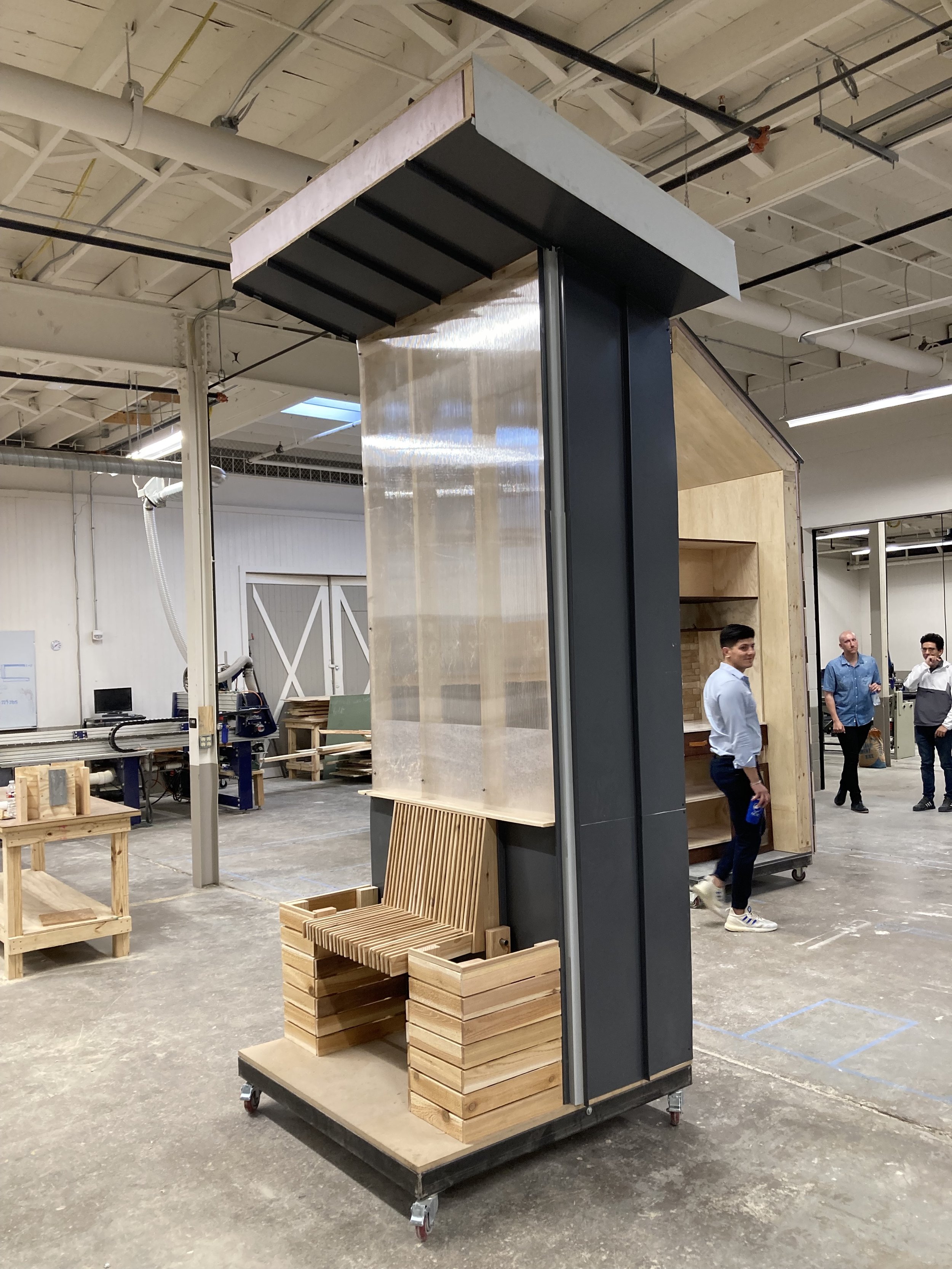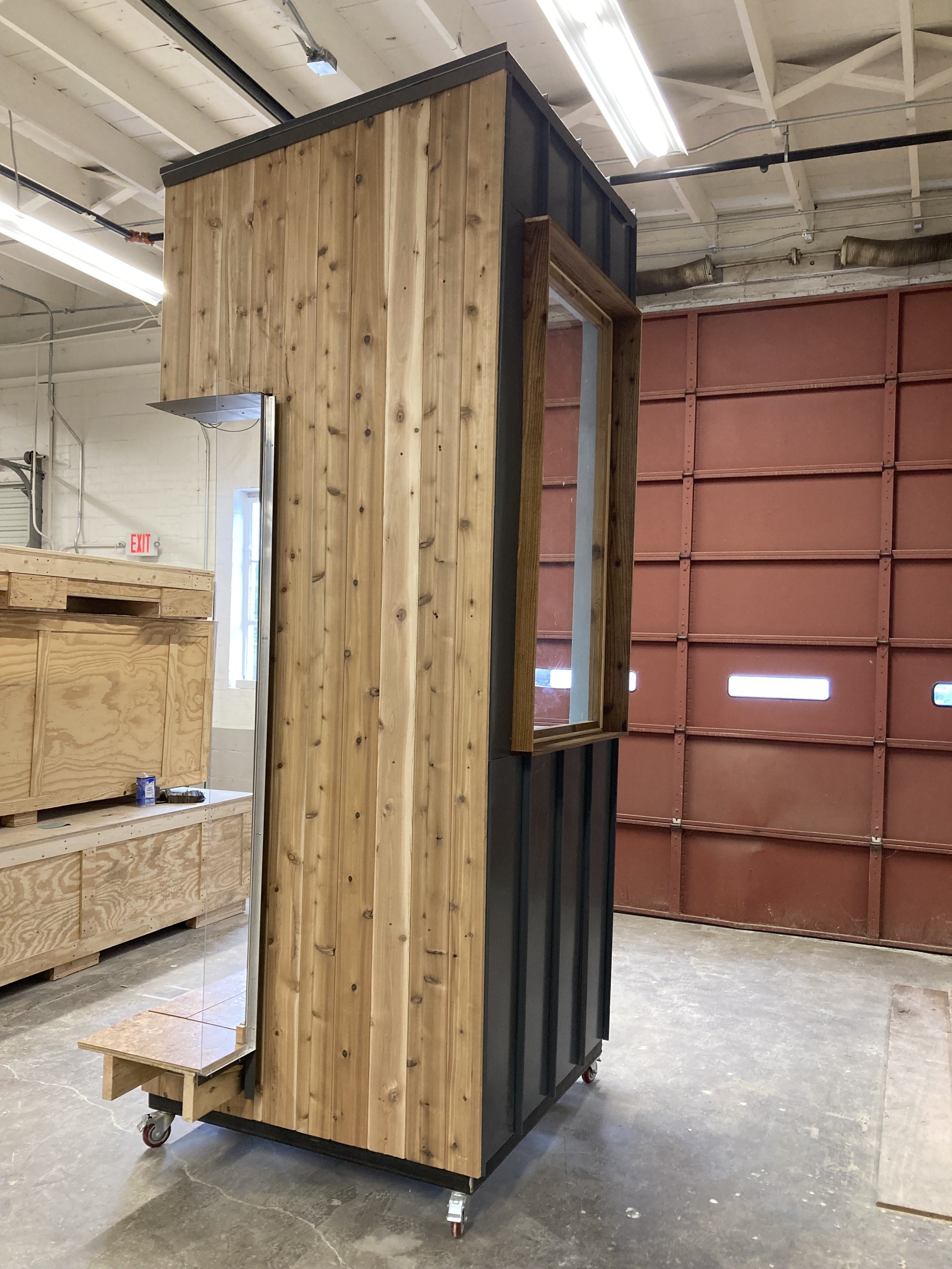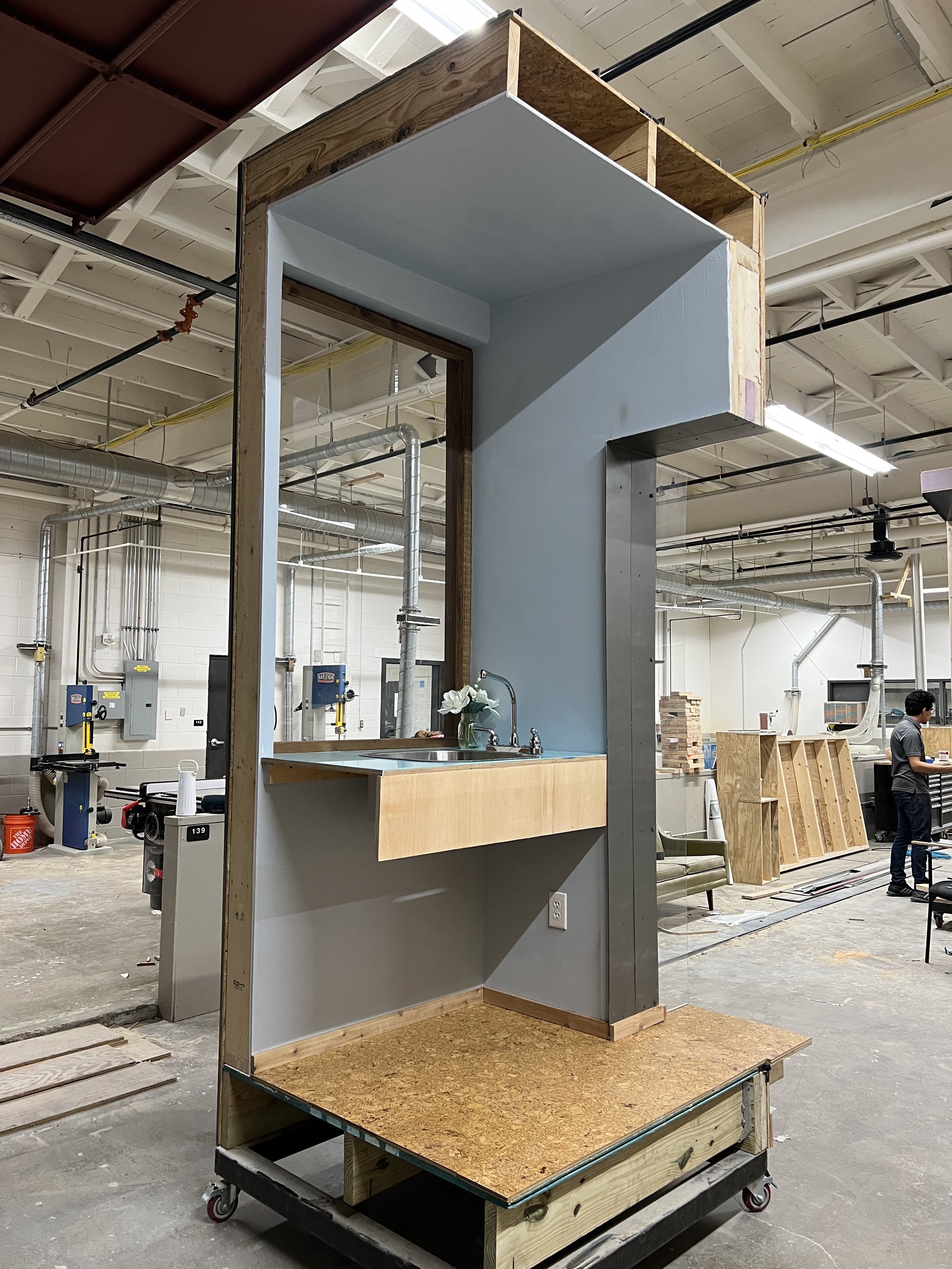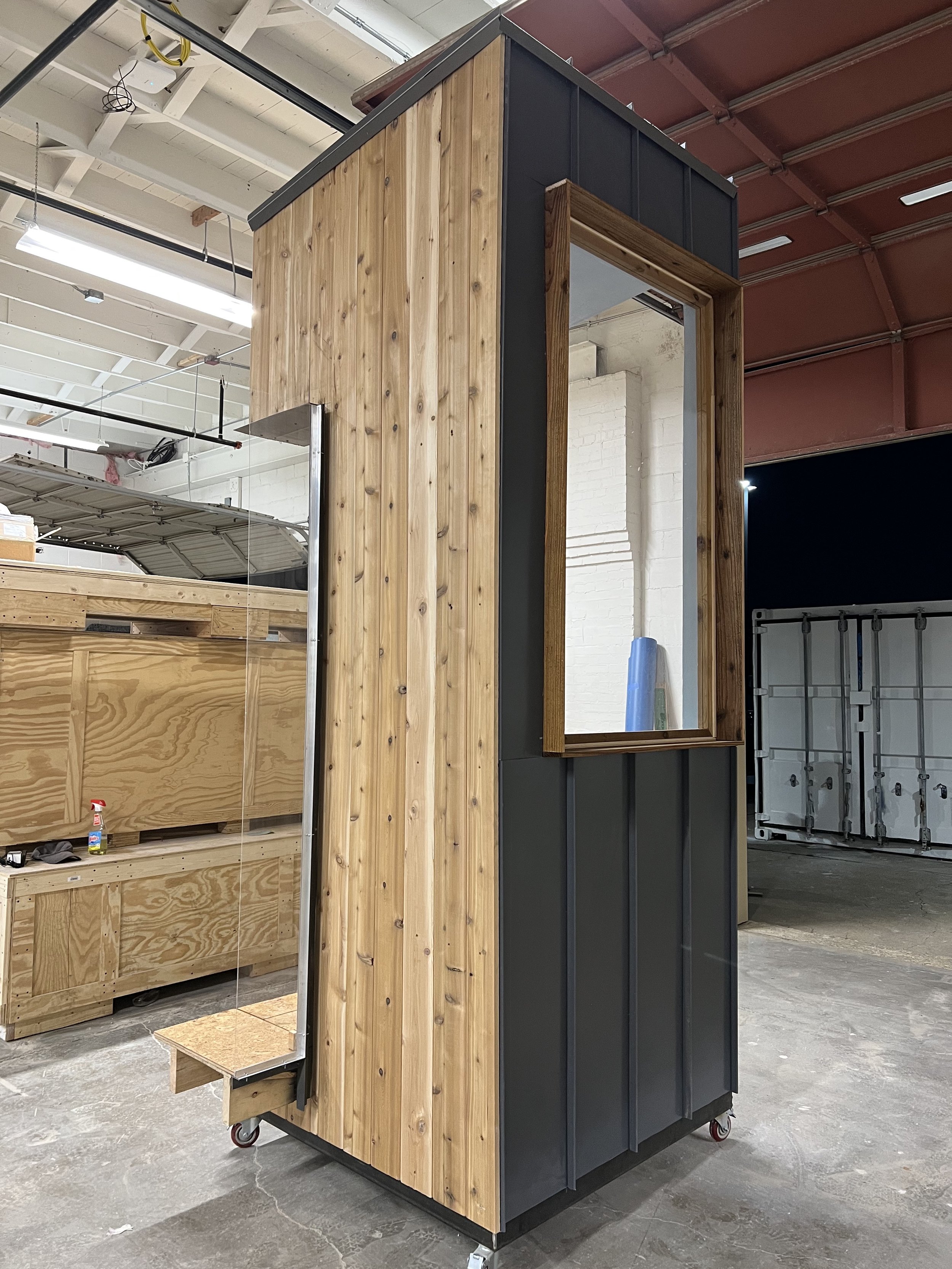Building a coalition for
(st)aging in place via Agile Dwelling Unit (AgDU)






“Through cross-disciplinary partnership, we seek to develop Agile Dwelling Units (ADUs) prototype that can be adapted to respond to the housing needs of the growing aging population. ”
Project overview
To age in place successfully, residential environments often need modification to match individuals’ changing capacities throughout their lifetime. Agile Dwelling Units (AgDUs) are small, residential units that can be adapted across life stages, known as (st)aging in place. AgDUs are a newly proposed model of housing that were developed based on the interdisciplinary research in the following fields: architecture design and construction, health technology, and human factors. In this coalition, we developed a research informed, human-centered, design approach applied to the development of prototype AgDUs to improve health outcomes for older adults.
By identifying the current trends, gaps, and challenges in designing, building, and deploying accessory dwelling units, we developed a research-based design framework and tools for students and designers who are interested to design a micro dwelling units to support older adults’ needs for maintaining their independence and achieve successful aging in place.
Our Approach
This project will deliver three key outcomes:
Phase 1: Identifying the current trends, gaps, and challenges in designing, building, and deploying agile dwelling units for the aging population. To develop a research-based approach design guide for planning an AgDU, an independent residential unit that can adapt to the changing needs of its residents in different stages of life.
Phase 2: Designing and constructing prototype of AgDU by our coalition. Our intent is to engage UTA students and UTA’s Community Design-Build Lab.
Phase 3: Creating actionable deployment strategy tested in the DFW area with acknowledgement of public issues, policy influences and needs for change.
AgDU Prototypes Development by UTA students
Students at UTA’s School of Architecture explored the design and development of Agile Dwelling Units (AgDUs) by engaging with community experts and practitioners to understand project priorities, values, opportunities, and challenges. Roundtable conversations, contextual research, material studies, and full-scale mockups informed the design process. UTA students also constructed a 4’x4’ full-scale mockup that represents an important aspect of the design at UTA’s Community Design Build Lab.
We are actively looking for additional industry partners to join us in this coalition through which we hope to make access to health and housing rapidly deployable and fundamentally equitable.
If you are interested in joining this coalition, please email CoalitionForHealth@cadreresearch.org
Continuing Education Unit:
CADRE 001
Agile Dwelling Units: A human-centered and lifelong approach to adaptable residential environments
Learning objectives:
Understand the concept of (st)aging in place as a lifelong approach to age in place
Assess users’ needs using the- spectrum of needs (i.e., physical, mental, cognitive, and social) to develop user capability map
Explain the concept of Agile Dwelling Units and its potential for adapting existing houses to support successful (st)aging in place
Linking Agile Dwelling Units design strategies to health outcomes for the occupants
Project publications
Please fill out this form to download the project report and one pager
Coalition Collaborators
The Center for Advanced Design Research and Evaluation (CADRE)
CADRE is a 501c3 design research entity focused on linking design to outcomes.
CADRE TEAM MEMBERS
Tom Harvey, President
Upali Nanda, Executive Director
Aletta Van Der Walt, Research Program Manager
UTA’s College of Architecture, Planning and Public Affairs(CAPPA)
CAPPA engages the creative and scholarly disciplines through its commitment to provide an outstanding research driven education.
UTA TEAM MEMBERS
Brad Bell, Director of UTA Architecture Program
Dr. Maria Martinez-Cosio, Interim Dean, College of Architecture, Planning and Public Affairs (CAPPA), UTA
Dr. Gabriela Mustata Wilson, UTA College of Nursing and Health Innovation and UTA’s Multi-Interprofessional Center for Health Informatics
Julia Lindgren, Assistant Professor, College of Architecture, Planning and Public Affairs (CAPPA)
Southern Ellis, Adjunct Assistant Professor, College of Architecture, Planning and Public Affairs (CAPPA)
Roman Herrington, UTA Senior Director of Development
HKS Architects
HKS, Inc. is an architecture firm and signatory of the UN Global Compact.
HKS TEAM MEMBERS
Upali Nanda, Director of Research
Deborah Wingler, Health Research Lead
Southern Ellis, Health Studio Director
Eric Broberg, Computational Analyst
PHD CANDIDATES AND STUDENTS
Landon Baldwin, UTA PhD Candidate, Public Policy Researcher
Lance Carson, UTA Cappa Graduate Student
Nicole Cevallos, UTA Multi-Interprofessional Center for Health Informatics (MICHI) Undergraduate student
Widya Ramadhani, PhD Candidate at University of Illinois, CADRE, Focus on Human Factors




